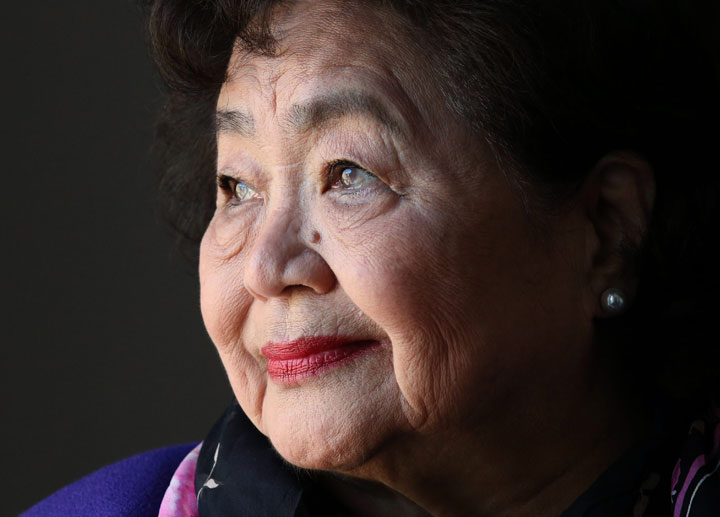TORONTO – A Canadian who survived the Second World War nuclear bomb attack on Hiroshima will accept the Nobel Peace Prize on behalf of the International Campaign to Abolish Nuclear Weapons.

Setsuko Thurlow, 85, was 13 years old and living in Hiroshima when the U.S. dropped the first of two nuclear weapons on Japan.
Thurlow, who married a Canadian and moved to Toronto in the 1950s, will accept the awards with the executive director of ICAN, Beatrice Fihn, in Oslo, Norway in December.
ICAN says Thurlow has been a leading figure in its movement since its launch in 2007.
ICAN says she played a key role in efforts at the United Nations to adapt a landmark treaty outlawing nuclear weapons.

Thurlow has campaigned against nuclear weapons for her entire life and said in a release on Thursday that she is “deeply humbled” to be asked to be invited to the Nobel Prize ceremony.
- Posters promoting ‘Steal From Loblaws Day’ are circulating. How did we get here?
- Video shows Ontario police sharing Trudeau’s location with protester, investigation launched
- Canadian food banks are on the brink: ‘This is not a sustainable situation’
- Solar eclipse eye damage: More than 160 cases reported in Ontario, Quebec
“It has been such a privilege to work with so many passionate and inspirational ICAN campaigners around the world over the past decade. The Nobel Peace Prize is a powerful tool that we can now use to advance our cause,” she said.
The Nobel Committee said earlier this year that it was recognizing ICAN for its work in drawing attention to the “catastrophic humanitarian consequences of any use of nuclear weapons and for its groundbreaking efforts to achieve a treaty-based prohibition of such weapons.”
The Geneva-based organization ICAN “has been a driving force in prevailing upon the world’s nations to pledge to co-operate … in efforts to stigmatize, prohibit and eliminate nuclear weapons,” committee chairwoman Berit Reiss-Andersen said in the announcement.
She noted that similar prohibitions have been reached on chemical and biological weapons, land mines and cluster munitions.
“Nuclear weapons are even more destructive, but have not yet been made the object of a similar international legal prohibition,” she said.
No more funding from arms producers
The Nobel Foundation made another announcement Friday: its prizes will no longer be funded with investments from nuclear arms producers. This announcement came just weeks after it awarded the Peace Prize to ICAN.
The private institution, based in Stockholm, is responsible for managing the fund left by the prizes’ founder, Alfred Nobel, a Swedish scientist who invented dynamite.
The cash award given to Nobel laureates comes from this fund, which according to Norwegian environmental organisation Framtiden i Vaare Hender (The Future in Our Hands) is financed with investments in funds from companies that manufacture nuclear weapons.

This means that part of the cash award – which this year was SEK nine million ($1.38 million Canadian) per category – came from companies such as “Airbus, Boeing, Safran and Northrop Grumman Corp,” so it is “very likely that the Nobel Foundation is invested in companies involved in (the) production of nuclear weapons,” Framtiden said.
“The timing is unfortunate,” Nobel Foundation director Lars Heikensten said, as the revelation came shortly after it gave the Peace Prize to an anti-nuclear campaign.
Heikensten said that after a hardening of the its ethical rules, the foundation had stopped investing, even indirectly, in producers of nuclear weapons, and that it had given itself 12 months to adjust or opt out of funds that invest in companies that manufacture these bombs.
“One can discuss that we should have done that earlier, but we sharpened our standards in March and we are now following through with it,” Heikensten said.
“At the latest, by March next year we will have no investment in anything that is connected with any kind of production which is classified as connected with nuclear weapons”.
-With files from the Associated Press and Agence France-Presse

Comments